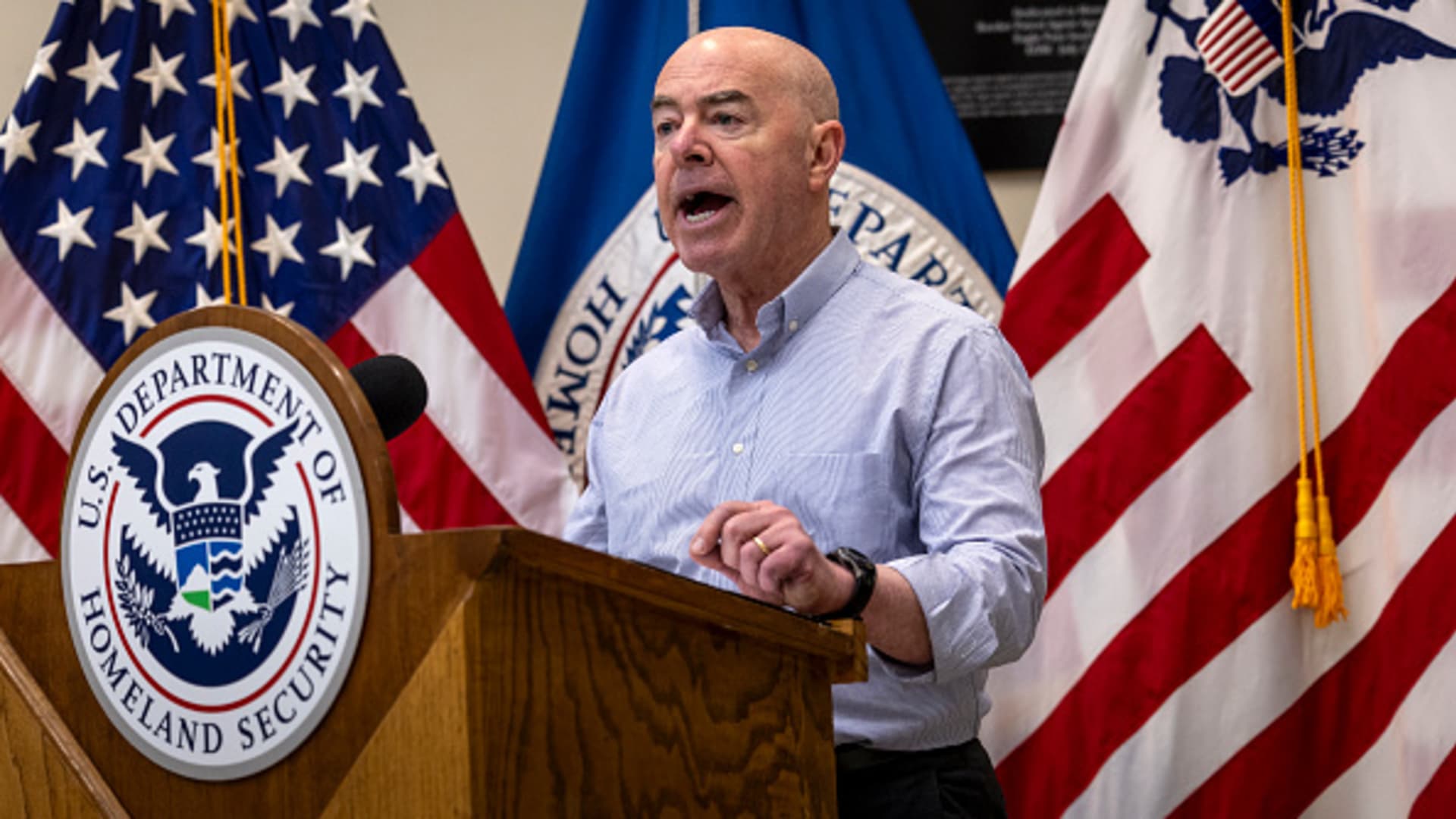Defense Secretary Lloyd Austin was hospitalized on Jan. 1 for complications following surgery nearly two weeks earlier to treat prostate cancer, doctors at Walter Reed National Military Medical Center revealed Tuesday.
The disclosure of Austin’s diagnosis and cause of his hospitalization came amid controversy over the Pentagon’s failure for days to inform the White House or the public that the Defense secretary had been admitted to Walter Reed, where he ended up in the intensive care unit.
Pentagon officials also failed for two days last week to notify Austin’s second-in-command that he had transferred authority to her while he was in the ICU, and while she was in Puerto Rico.
President Joe Biden only learned Austin’s prostate cancer diagnosis on Tuesday morning, three days after speaking with Austin on the phone, the White House said.
Hours later Tuesday, the Walter Reed doctors issued their public statement, which is just the latest in a series of surprising disclosures about the Defense chief’s health since Friday.
Austin is sixth in the line of presidential succession and is an essential player in the United States national security apparatus. His previously secret hospitalization came as the U.S. was weighing and executing several major national security measures, including military strikes in the Middle East.
Members of Congress were stunned last Friday to learn from a public Pentagon statement that Austin had both had elective surgery, and later hospitalized on Jan. 1 without them being informed at the time. Biden was informed of the hospitalization on Thursday.
Shortly before Austin’s diagnosis was publicly released Tuesday, Senate Armed Services Committee Chairman Sen. Jack Reed said, “This lack of disclosure must never happen again.”
“He is taking responsibility for the situation, but this was a serious incident and there needs to be transparency and accountability from the Department,” said Reed, D-Rhode Island.
The Republican-led House Armed Services Committee on Tuesday opened a formal inquiry into Austin’s secret hospitalizations, saying it had “grave concerns about the handling of your absence and hospitalization.”
“With wars in Ukraine and Israel, the idea that the White House and even your own Deputy did not understand the nature of your condition is patently unacceptable,” committee Chairman Mike Rogers, R-Alabama.
The panel asked Austin for information about any medical sedation or anesthesia he received last week, any orders given to “inform or not inform any other person of your hospitalization or medical condition,” and a detailed account of his transfer of duties to Deputy Defense Secretary Kathleen Hicks.
The statement Tuesday from Walter Reed came from Dr. John Maddox, trauma medical director, and Dr. Gregory Chesnut, director of the Center for Prostate Disease Research of the Murtha Cancer Center.
The statement said that Austin, as part of his “routinely recommended health screen, “has undergone prostate specific antigen surveillance.”
“Changes in his laboratory evaluation in early December 2023 identified prostate cancer which required treatment,” the doctors said in their statement.
Prostate cancer is the most common form of cancer in American men, occurring at a rate of 1 in every 8 men, and at a rate of 1 in every 6 Black men, the statement noted.
“On December 22, 2023, after consultation with his medical team, [Austin] was admitted to Walter Reed National Military Medical Center and underwent a minimally invasive surgical procedure called a prostatectomy to treat and cure prostate cancer.”
Austin was “under general anesthesia during this procedure,” the doctors said. “Secretary Austin recovered uneventfully from his surgery and returned home the next morning. His prostate cancer was detected early, and his prognosis is excellent. “
But on Jan. 1, the doctors said, Austin was re-admitted to the Bethesda, Maryland, hospital after experiencing complications from the surgery, “including nausea and severe abdominal, hip and leg pain.”
“Initial evaluation revealed a urinary tract infection,” the statement said.
On Jan. 2, Austin was transferred to Walter Reed’s ICU “for close monitoring and a higher level of care,” the doctors said.
Biden was not told that Austin was in the hospital until two days after his admission to the ICU.
After Austin’s transfer there, doctors discovered a collection of abdominal fluid was impairing the function of his small intestines.
“This resulted in the back up of his intestinal contents which was treated by placing a tube through his nose to drain his stomach,” the statement said. “The abdominal fluid collections were drained by non-surgical drain placement.”
The doctors said Austin’s condition has “progressed steadily throughout his stay” and that his infection has cleared.
“He continues to make progress and we anticipate a full recovery although this can be a slow process,” the doctors said. “During this stay, Secretary Austin never lost consciousness and never underwent general anesthesia.”
Austin is no longer in the ICU but remains at Walter Reed.
The new statement is not likely to put an end to questions about Austin’s failure to disclose his condition or hospitalization, which had led to calls for his resignation by some lawmakers on Capitol Hill.
Austin and Biden so far have resisted those calls.
White House Press Secretary Karine Jean-Pierre has said that the president maintains “complete confidence” in his defense secretary.
But on Tuesday, Biden’s chief of staff Jeff Zients sent a memo to all members of the president’s Cabinet, which includes Austin, notifying them that the White House is conducting a review of protocols by departments for the delegation of authority by Cabinet members.
Zeints directed all Cabinet members to instruct their agencies to submit their existing protocols to the White House, according to the memo, which was obtained by NBC News.
In the meantime, Zients wrote, Cabinet agencies “must ensure” that they notify the White House and the chief of staff “in the event of a delegation of authority or potential delegation.”
“This notification should occur when agencies anticipate or are preparing for a delegation of authority and again when the delegation occurs,” Zients wrote.
Pentagon Press Secretary Air Force Maj. Gen. Pat Ryder at a press briefing Tuesday said, “Secretary Austin has taken responsibility for the issues with transparency, and the Department is taking immediate steps to improve our notification procedures.”
National Security Council spokesman John Kirby, at a press briefing Tuesday, referred to the controversy surrounding Austin.
“We all recognize that this didn’t unfold the way it should have on so many levels,” Kirby said.








